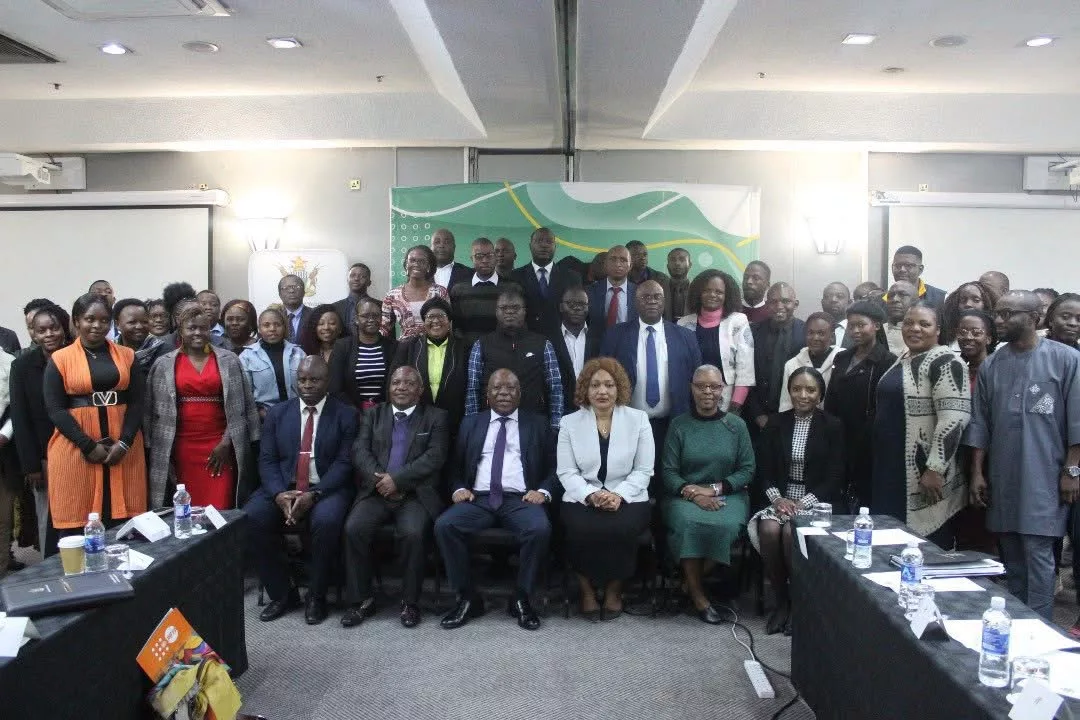|
Getting your Trinity Audio player ready...
|
Writes Sirak Gebrehiwot
27 May 2025, Harare – In an era where the youth are increasingly recognized as critical agents of change, Zimbabwe’s commitment to enhancing youth engagement for the Sustainable Development Goals (SDGs) marks a significant milestone. The Youth Empowerment Strategy for Zimbabwe is a bold initiative designed to harness the potential of the youth demographic, aligning national priorities with global benchmarks to foster sustainable development.
At the Youth Empowerment Strategy Validation workshop held on Tuesday in Harare, Ms. Miranda Tabifor, the UNFPA Representative, eloquently articulated the critical role of youth in national development. She emphasized that the Strategy is a testament to a collective effort by government, civil society, UN agencies, and youth themselves. The initiative aims to create a sustainable future by equipping youth with skills, creating opportunities, supporting health and well-being, and fostering an environment where young people can thrive.
Zimbabwe’s demographic profile underscores the urgency of such initiatives. With over 67.7% of the population under the age of 35, youth represent a substantial portion of the nation’s human capital. As the 2022 Zimbabwe Census Report indicated, there are over 4.8 million young people, projected to rise to 5.4 million by 2024. This demographic shift necessitates targeted and inclusive interventions to address challenges such as unemployment and limited access to education.
The United Nations System plays a pivotal role in this transformative journey through the 2022-2026 Zimbabwe United Nations Sustainable Development Cooperation Framework (UNSDCF). The UN collaborates with the Government of Zimbabwe to empower young people by focusing on capacity building, entrepreneurship support, access to education, promoting healthy lifestyles including fighting against drug and substance abuse, innovation, and digital skills. This partnership reflects the global Pact for the Future, aligning Zimbabwe with themes such as sustainable development, climate change, and youth empowerment.
Ms. Tabifor highlighted the alignment between Zimbabwe’s Youth Empowerment Strategy and the UN’s global Youth2030 Strategy, which emphasizes empowering and engaging youth, boosting SDG implementation, advancing knowledge, unlocking resources, and enhancing accountability. These strategic priorities underscore the necessity of youth engagement in realizing the SDGs by 2030.
Globally, youth engagement strategies provide essential benchmarks for comparison. With over 1.8 billion young people worldwide, harnessing their potential is crucial for sustainable development. Countries that have successfully integrated youth into their development agendas demonstrate the transformative impact of empowering young people. These global practices inspire Zimbabwe’s strategy to formulate and implement approaches in key areas:
• Equipping youth with skills relevant to a rapidly evolving job market.
• Supporting entrepreneurship and innovation through funding, mentorship, and networking.
• Strengthening leadership development to ensure young voices are heard in decision-making.
• Enhancing access to education, training, and digital literacy.
• Promoting inclusivity by empowering marginalized groups, including young women and youth with disabilities.
• Addressing health and well-being, focusing on challenges like drug and substance abuse.
The validation of the Youth Empowerment Strategy signifies the Government of Zimbabwe’s commitment to fostering a generation of empowered, skilled, and ready youth leaders. Ms. Tabifor emphasized that with strong partnerships and collaboration with the government at all levels, the private sector, civil society, and communities, investment in youth will translate into national development.
The strategy will facilitate Zimbabwe to harness the youth dividend through structured engagement and empowerment. As the nation diligently implements this Strategy, the hope is that young Zimbabweans will take bold actions to shape a just and equitable future.
The collaboration of all stakeholders and the strategic alignment with global frameworks like Youth2030 ensures that Zimbabwe is on a trajectory to achieve its vision and contribute substantially to the global SDG agenda by 2030.
Sirak Gebrehiwot is UN Partnerships and Development Finance Advisor at the UN Resident Coordinator’s Office in Zimbabwe






